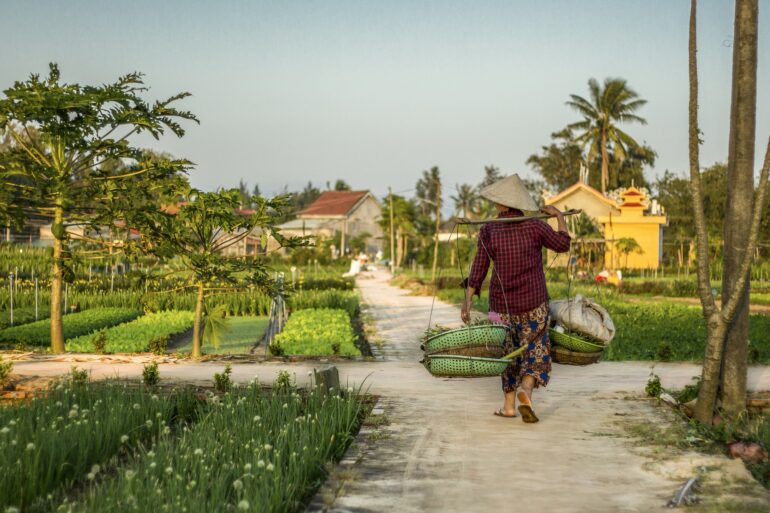TL;DR:
- Vietnam’s government has requested social media platforms like Facebook, TikTok, and YouTube to utilize artificial intelligence (AI) models to automatically identify and remove politically sensitive online content.
- This move demonstrates the Communist Party of Vietnam’s (CPV) ongoing efforts to control the flow of information on social media platforms and restrict dissent.
- Vietnam has increased pressure on social media networks to eliminate politically sensitive content and enacted a cybersecurity law requiring platforms to take down posts deemed threatening to national security within 24 hours.
- As one of the significant digital markets, Vietnam’s leverage over tech giants has led to their compliance with government requests to remove offensive content.
- Facebook reported removing nearly 2,000 pieces of content in 2021, while YouTube and TikTok also complied with government takedown requests.
- Vietnam has established a robust legal framework, including mandating foreign tech firms to have local representative offices and store user data within the country.
- The government aims to introduce new rules to limit news-related content sharing on social media accounts.
- Identity verification has become mandatory for users of Facebook, TikTok, and other social media networks, with the intent to combat online scams and suppress political dissent.
- The CPV has initiated an investigation into the popular social media app TikTok, which is gaining traction among Vietnamese youth.
- This request signifies a further tightening of the CPV’s control over the online sphere, aiming to shape the agenda of Big Tech according to its own priorities.
Main AI News:
In a move to regulate the information circulating through its digital networks, Vietnam’s government has called upon social media platforms to employ artificial intelligence models for automating the detection and removal of politically sensitive online content. This recent request signifies the Communist Party of Vietnam’s (CPV) ongoing commitment to limiting the scope of social media platforms in the country, aiming to prevent the incitement of dissent. While Vietnam has increased pressure on social media networks in recent years to eliminate politically sensitive content, it has also implemented a cybersecurity law mandating the takedown of posts deemed threatening to national security. Facebook and Google, for instance, must remove such posts within 24 hours of receiving a government request. Notably, Vietnam boasts a substantial digital market, ranking seventh globally for Facebook users and sixth for TikTok users, allowing the government to leverage its economic influence to persuade tech giants into compliance.
Facebook’s internal data reveals that in 2021 alone, the platform removed close to 2,000 pieces of content, with an additional 984 pieces removed in the first half of 2022. Most of these removals were attributed to the alleged violation of local laws, including the spread of distorted, slanderous, or insulting information targeting individuals or organizations. At the Ministry of Information’s mid-year conference, it was reported that during the first half of this year, Facebook removed 2,549 posts, while YouTube took down 6,101 videos and TikTok eliminated 415 links, all in response to government takedown requests. Amnesty International previously accused Facebook and YouTube of enabling “censorship and repression on an industrial scale” in Vietnam, highlighting the significant control exerted over the online sphere.
To strengthen its control further, Vietnam has established a robust legal framework, compelling foreign technology companies to establish local representative offices and store users’ data within the country. Additionally, new regulations are being developed to restrict which social media accounts can share news-related content. In a recent announcement, the Vietnamese government mandated users of platforms like Facebook and TikTok to verify their identities, citing the need to combat online scams and other forms of cybercrime. However, this measure is also seen as a means to suppress various forms of political dissent, as classified by the CPV. Moreover, the CPV initiated an investigation into TikTok, the increasingly popular social media app challenging Facebook’s dominance among the country’s youth.
While specific details regarding the implementation of the new requirement were not provided in the state media report cited by Reuters, it indicates a further tightening of the CPV’s control over the online sphere. The government’s efforts reflect its determination to shape the agenda of Big Tech according to its own priorities, as it strives to ensure that these platforms conform to its standards.
Conclusion:
Vietnam’s call for tech giants to leverage AI for censoring “anti-state” content indicates the government’s determination to regulate the digital landscape. With its economic leverage, Vietnam has successfully compelled major social media platforms to comply with takedown requests. This tightening control over the online sphere, along with stringent legal measures, showcases Vietnam’s commitment to shaping the market according to its own standards and curbing political dissent through online platforms.

